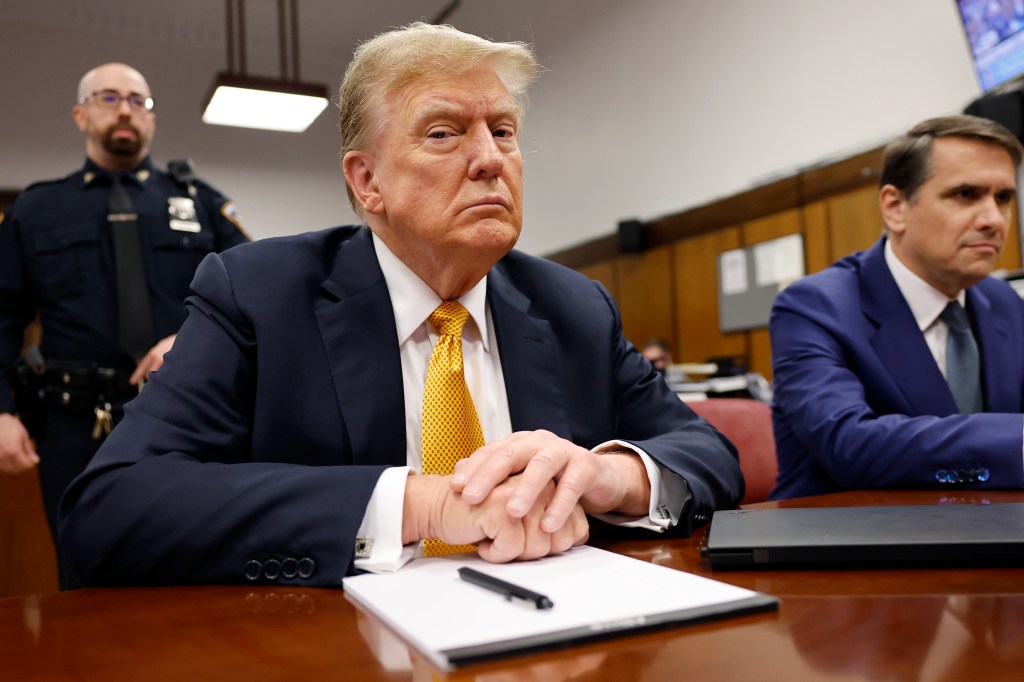Defense rests case without Trump testifying in hush money trial
Published 1:29 pm Tuesday, May 21, 2024

- Former President Donald Trump sits in Manhattan Criminal Court on Tuesday, May 21, 2024 in New York.
NEW YORK (AP) — The defense rested its case in Donald Trump’s hush money trial on Tuesday morning without the former president taking the witness stand to testify, bringing proceedings one step closer to closing arguments.
After more than four weeks of testimony, jurors were sent home with Judge Juan M. Merchan telling them they wouldn’t be needed in court until closing arguments next Tuesday. Merchan suggested the court session may run late that day to accommodate summations from both sides — the defense and prosecution. Merchan told jurors he then expects his instructions to them will take about an hour.
Jurors could begin deliberating as soon as next week to decide whether Trump is guilty of 34 felony counts of falsifying business records.
Prosecutors have accused Trump of a scheme to bury negative and often salacious stories that might have torpedoed his 2016 presidential campaign and then falsifying internal business records to cover up hush money payments associated with the alleged scheme. He has denied the allegations.
Prosecutors rested their case Monday after star witness Michael Cohen concluded his testimony. Cohen spent nearly four full days on the witness stand, placing the former president directly at the center of the alleged scheme. The defense called just two witnesses following the conclusion of Cohen’s testimony — paralegal Daniel Sitko and attorney Robert Costello.
The trial is in its 20th day.
Trump has pleaded not guilty to 34 felony counts.
The case is the first-ever criminal trial of a former U.S. president and the first of four prosecutions of Trump to reach a jury.
What must be proved for convictionDonald Trump is charged with 34 counts of falsifying business records in his hush money case.
The charge is a Class E felony in New York, the lowest tier of felony charges in the state. It is punishable by up to four years in prison, though there is no guarantee that a conviction would result in prison time.
To convict Trump, prosecutors must convince jurors beyond a reasonable doubt that he not only falsified or caused business records to be entered falsely — which would be a misdemeanor — but also that he did so to conceal another crime, making the charges felonies. Prosecutors allege the other crimes included violations of campaign finance and election law.
Any verdict must be unanimous.
New York court records and newspaper archives show defendants convicted of felony falsifying business records charges are seldom sentenced to prison for that offense alone. Often, the charge is coupled with more serious felonies like grand larceny.
Trump’s case involves only charges of falsifying business records. He has pleaded not guilty to the charges and denies any wrongdoing.




